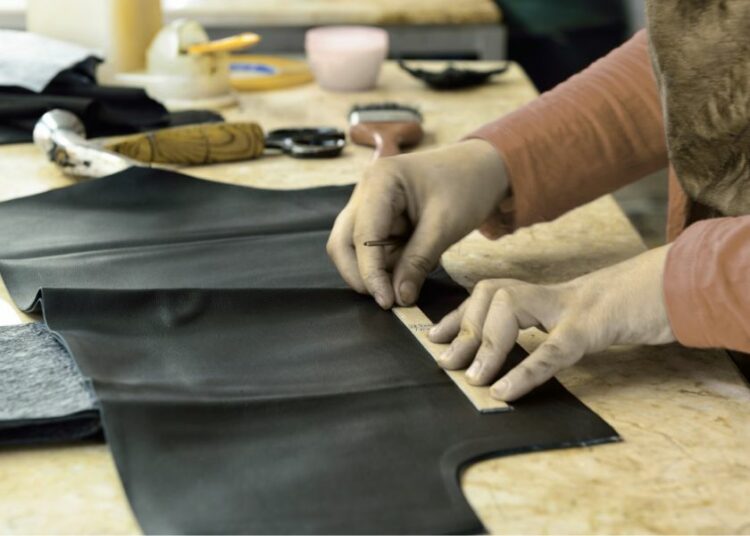Nigeria’s ambition to expand its leather industry to $1 billion in annual revenue by 2025 may have fallen short, industry data and stakeholder interviews have shown, with export earnings stuck below the $1 billion mark and value‑added production still minimal.
Figures from the Nigerian Export Promotion Council (NEPC) indicate that the sector generated roughly $921 million in 2024, well below the billion‑dollar target set out in the National Leather and Leather Products Policy unveiled four years ago. The NEPC maintains that output could reach $1.5 billion if processing, financing and infrastructure bottlenecks are resolved, yet little progress has been recorded on these fronts.
Nigeria exports 90 percent of its hides in semi‑processed form, which accounts for $272 million. The rest is used to process various leather products, mainly in Aba, Abia state.
Producers in the leather industry express skepticism about attaining the $1 billion value chain because the conditions that hampered the growth of the industry remain unchanged.
In Aba, often dubbed “Africa’s China” for its bustling clusters of artisans, shoe makers say electricity outages and obsolete machinery cap production. “Our products can rival imports, but without reliable power and equipment loans we cannot scale,” said Aba‑based footwear producer Nkechi Ofor,
The same sentiment was aired by a leather bags producer, Lewechi Kemakolam. “This is our trade. We can’t run from it; but conditions have to change before we can grow this industry to our potential,” he said.
According to the Nigeria Economic Summit Group (NESG), Nigeria has an underproduction problem, when compared to Vietnam, with a population of 96 million, and an annual production capacity of 760 million pairs, while Nigeria, on the other hand, produces 48 million shoes from its local production epi-centre- Aba, which houses the largest shoe clusters in Nigeria.
Only a few shoe factories continue to operate and are barely surviving through government contracts to supply leather shoes to the Army, Police Force, and the Ministry of Defense. Most of these shoemakers make use of old machinery and mundane methods to sustain their production capacity. This affects their ability to scale and increase their production capacity efficiently.
There are also the issues of logistics and supply chain that are bedeviling the industry in Nigeria. One manager of a shoemaking factory in Aba, Paul Mbanefo, told this medium that despite the fact that Nigeria is a major producer of hides on the continent, some of the raw materials used to produce bags and shoes in Aba are imported. He blamed the problem on “lack of national coordination”.
Market research underscores the lost opportunity. Data from Statista values the global leather goods market at $400 billion, while the worldwide shoe segment alone exceeds $270 billion. Analysts estimate that Aba’s shoe workshops account for a mere 0.0013 per cent of global footwear sales.
Back in 2021, then vice president, Prof Yemi Osinbajo predicted the industry could “easily top a billion dollars” by 2025 if Nigeria moved from raw exports to finished leather goods. A National Leather and Leather Products Implementation Plan, covering eight thematic areas—funding, infrastructure, R&D, and environmental standards among them was launched to drive the shift.
Yet many of the plan’s milestones remain unmet. One staff of the Nigerian Institute of Leather Science and Technology warned that without a single coordinating framework linking “research, education, industry and exports, the country will continue to trail Ivory Coast, Ethiopia and Morocco in value‑added leather trade.
Environmental compliance is another obstacle. Several international buyers now demand traceability and eco‑friendly processing, standards many local tanneries cannot yet guarantee, according to Sani Idris, manager of a mid‑sized tannery in Kano.
There appears to be a belief that the proper implementation of the policy on leather in which there are specific provisions that relate to some aspects of the national development plan is the only measure that will enable Nigeria to maximally benefit from the industry. As a policy that is both sector-specific and harmonised version of such past laws as Northern Nigeria Hides and Skins (Export Duty) Act of 1962, Hides and Skins Act of Federation of Nigeria of 2004, Agricultural Transformation Agenda of 2012 and the Nigerian Industrial Revolution Plan of 2012, the document contains well-defined plans for the speedy development of the leather industry in particular and the national economy in general.
With less than six months left in 2025, industry leaders fear the billion‑dollar mark will remain elusive unless promised reforms move from policy documents to factory floors.





